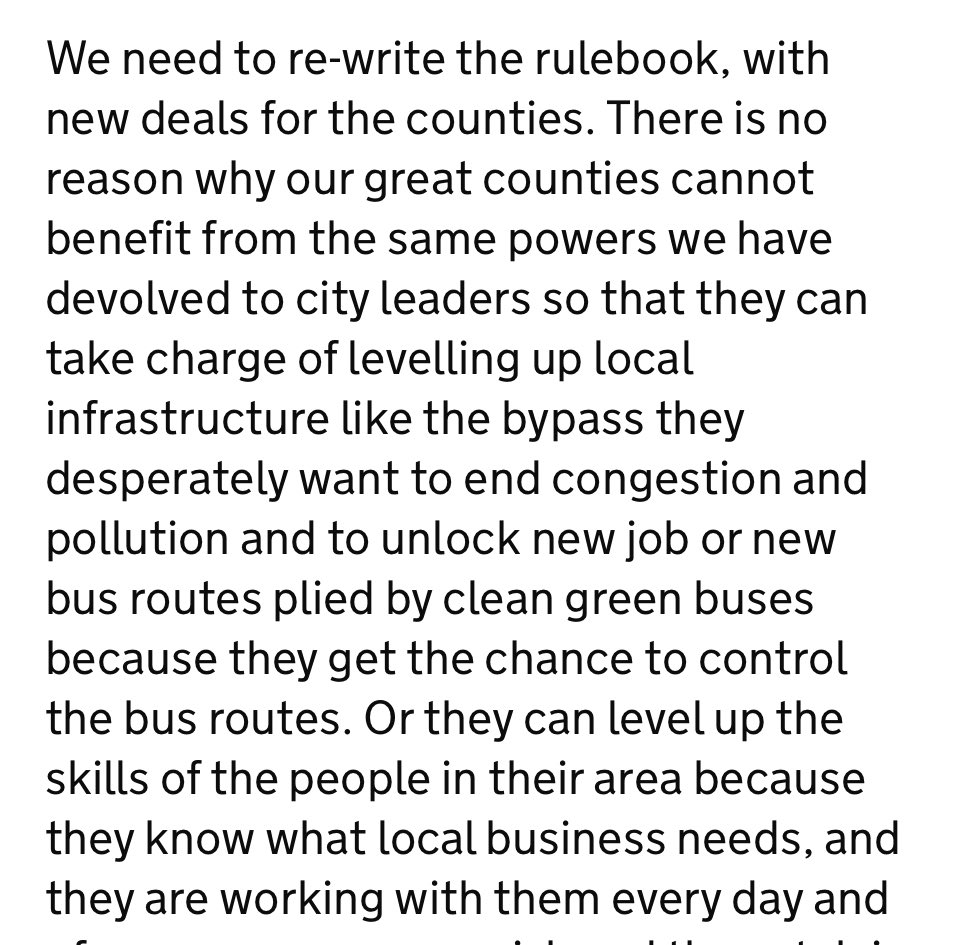
A couple of comments on Johnson’s speech on levelling-up. I’m interested here in the constitutional issue: centralisation.
It’s not obvious to me what this means or where it’s going. The first sentence appears to suggest giving other mayors the powers of the London mayor. But it’s worth noting how limited the London Mayor’s powers are compared to the powers of mayors in other big cities in Europe/US. 

(Since Johnson refers to the success of mayors in other G7 countries, that’s a pertinent point.)
(Also pertinent to note the ways in which the current government has interfered with the London mayor’s patch when it just disagrees with him - eg on planning and transport.)
This tries to explain why we are so centralised - and at least admits that past Tory governments bear a lot of the blame (though it is then passed on to “irresponsible” local leadership, which raises the question of who should judge “irresponsibility”, apart from voters). 

Decentralisation isn’t - and can’t be - “do what you can get elected to do, as long as we at the centre agree with it.”
Note, critically, the complete absence of any reference to creating viable local tax bases and sustainable sources of revenue other than central handouts. But that is critical to successful (and responsible) local government.
(Council tax is a hopeless - and inequitable - tax base.)
All in all, it’s hard to make much sense of this. But nothing there to suggest that decentralising power is a really serious policy objective.
• • •
Missing some Tweet in this thread? You can try to
force a refresh













